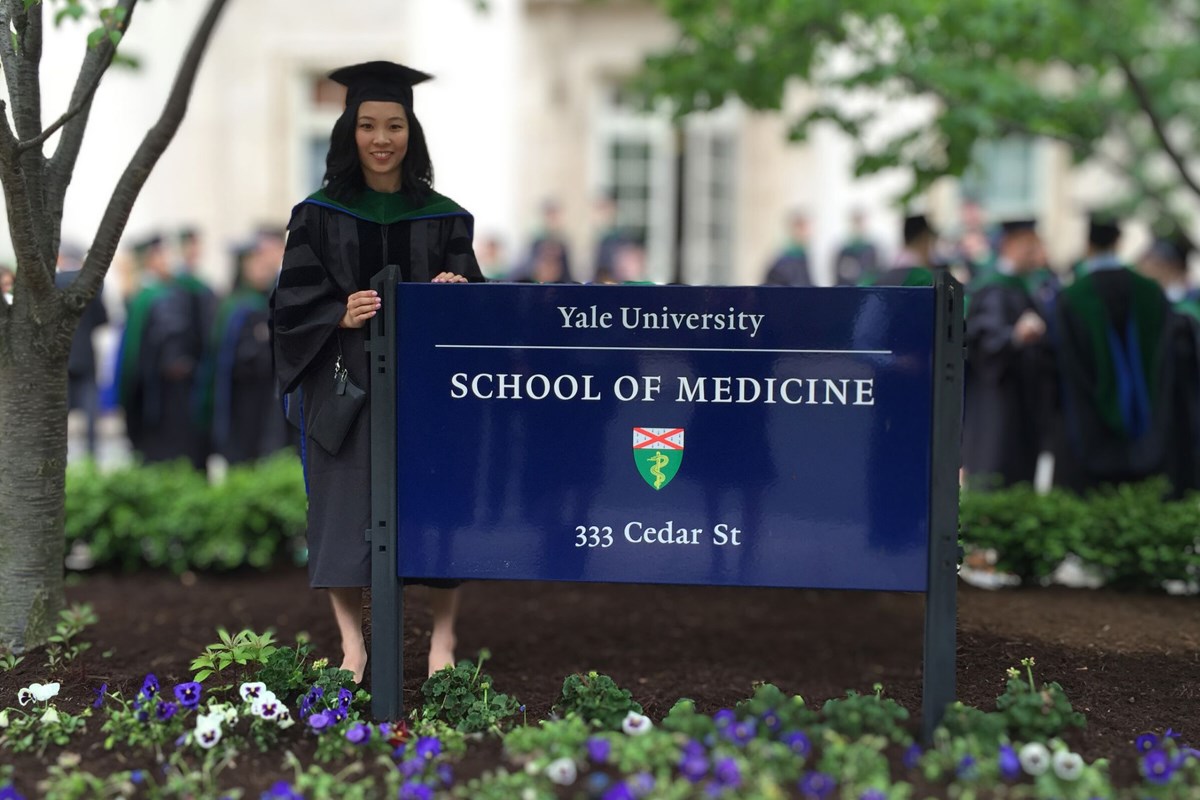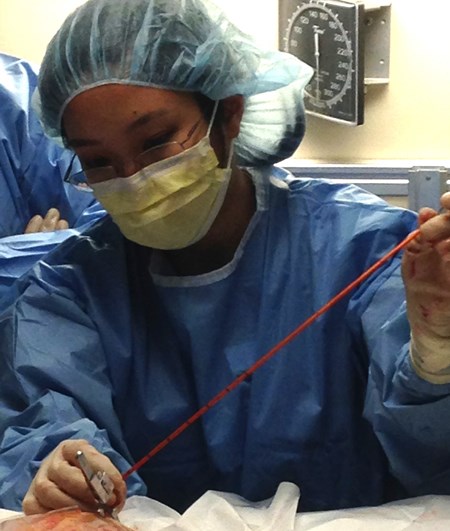International Women's Day: Dr. Jennifer Quon, SickKids' first female paediatric neurosurgeon
Summary:
In her own words, Dr. Quon reflects on experiences, challenges and supports that helped shape her career.

Dr. Jennifer Quon, Paediatric Neurosurgeon, didn’t expect to stay at The Hospital for Sick Children (SickKids) after she completed her Chief Fellowship in Paediatric Neurosurgery in summer 2023.
“I never thought I’d have the opportunity to remain at SickKids, but when I was offered a position as a staff paediatric neurosurgeon, it was a chance I couldn't give up,” says Dr. Quon, who is also an Associate Scientist-Track Investigator, SickKids Research Institute, and an Assistant Professor for the Department of Surgery at the University of Toronto (U of T). “I already knew my fantastic colleagues, the rich academic environment and the massive history and reputation SickKids and U of T have in paediatric neurosurgery. But really, it was the people and the supportive environment that made me want to stay.”
From growing up in the suburbs of New York City, to medical school at Yale University and neurosurgery residency at Stanford University, Dr. Quon’s experiences have led her to become the first female paediatric neurosurgeon at SickKids.
This International Women’s Day – in her own words – Dr. Quon reflects on experiences, challenges and supports that helped shape her career in the field of paediatric neurosurgery.

Inspirations and challenges
My journey into paediatric neurosurgery began unexpectedly in the fast-paced and challenging environment of medical school at Yale University. As soon as I started my neurosurgery rotation, I fell in love with it. The desire to care for children further fueled my pursuit of becoming a paediatric neurosurgeon. However, being a woman in this field posed some challenges. Despite progress, a gender gap persists, leading to frequent questioning and doubts by others early on in my career. People would question my decision, asking, “Are you scared to do it?”, “You may not have time for kids”, “It’s going to be really hard.” It sometimes felt like people were trying to talk me out of my career decisions, but I’m lucky enough that invaluable support outweighed any doubts.

Breaking gender barriers
As the first female paediatric neurosurgeon at SickKids, breaking gender barriers holds both significance and responsibility. Visibility is crucial, and I’m dedicated to inspiring trainees and students while reassuring them to persevere. My role also brings so many positive interactions with patients and their families. I love when a patient asks if I’ll be doing their surgery and thinks it’s really cool when I tell them I am. Overcoming gender-related challenges is an ongoing journey, but one I’m excited to play a role in.

Dr. Jennifer Quon’s first day of residency at Stanford University, alongside two co-residents and friends.
Professional growth
Key moments I think about that have been most impactful in helping me grow professionally often revolve around successful outcomes in intense, difficult patient cases. I often draw upon the profound gratitude from patients and their families, and these memories serve as a reminder of why I do what I do, even though it can be really challenging.

Mentorship and support
Not having a role model or mentor can be a huge barrier. For me, support from family, friends and colleagues has been pivotal at every career stage. I am the oldest of three girls and I’m grateful that my family has always supported me in what I wanted to do. Engaging in mentorship, both as a mentee and mentor, is a continuous process. Recognizing its importance, especially for aspiring female neurosurgeons, underscores the need for guidance at every stage, and I’m looking forward to continuing that guidance at SickKids.

Dr. Jennifer Quon (left), as a resident, operating with a staff surgeon at Stanford University.
Advancing diversity and inclusion
Creating an inclusive environment requires visibility and representation, enabling younger individuals to see professionals who resemble them. Emphasizing honest conversations and supporting Equity, Diversity & Inclusion initiatives contributes to shaping a more inclusive culture in neurosurgery. The focus is on continuous improvement and fostering a supportive culture for the growth of future neurosurgeons.

Advice for young people
My advice: Pursue surgery and medicine out of genuine passion and stay true to oneself. If it’s what you love, you’ll find a way, just keep going. I would advise women and trainees from underrepresented backgrounds to be resilient, and to remember that they are part of the changes in culture that will ultimately make our field better over time. I hope in my life and career to see more diversity at the leadership levels and that there won't be such a thing as being the “first” or “only” of anything in neurosurgery.

Dr. Jennifer Quon’s first neurosurgical procedure – placing an external ventricular drainage (EVD) in a patient.

